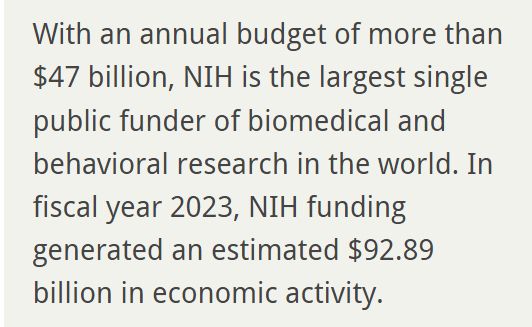Ahmed Moustafa
@ahmedmicrobes.bsky.social
Assistant Professor at UPenn & Children’s Hospital of Philadelphia
Associate Director Center for Microbial Medicine (https://tinyurl.com/2xve6jfp) at CHOP
Director CHOP Microbiome Core (https://tinyurl.com/4bwdn2wk)
Microbial bioinformatics and ID genomics
Associate Director Center for Microbial Medicine (https://tinyurl.com/2xve6jfp) at CHOP
Director CHOP Microbiome Core (https://tinyurl.com/4bwdn2wk)
Microbial bioinformatics and ID genomics
Join my team at Children’s Hospital of Philadelphia, Research Technician III-Microbiome Center careers.chop.edu/70oyDxL

Research Technician III-Microbiome Center in Philadelphia, Pennsylvania, United States of America | Research at Children’s Hospital of Philadelphia
Apply for Research Technician III-Microbiome Center job with Children’s Hospital of Philadelphia in Philadelphia, Pennsylvania, United States of America. Research at Children’s Hospital of Philadelphi...
careers.chop.edu
October 4, 2025 at 9:13 AM
Join my team at Children’s Hospital of Philadelphia, Research Technician III-Microbiome Center careers.chop.edu/70oyDxL
Join the CHOP Microbiome Center as a Research Technician IV!
We are seeking a motivated individual with hands-on experience in next-generation sequencing (NGS) to support our innovative microbiome research.
careers.chop.edu/us/en/job/10...
We are seeking a motivated individual with hands-on experience in next-generation sequencing (NGS) to support our innovative microbiome research.
careers.chop.edu/us/en/job/10...

Research Technician IV in Philadelphia, Pennsylvania, United States of America | Research at Children’s Hospital of Philadelphia
Apply for Research Technician IV job with Children’s Hospital of Philadelphia in Philadelphia, Pennsylvania, United States of America. Research at Children’s Hospital of Philadelphia
careers.chop.edu
August 20, 2025 at 6:01 PM
Join the CHOP Microbiome Center as a Research Technician IV!
We are seeking a motivated individual with hands-on experience in next-generation sequencing (NGS) to support our innovative microbiome research.
careers.chop.edu/us/en/job/10...
We are seeking a motivated individual with hands-on experience in next-generation sequencing (NGS) to support our innovative microbiome research.
careers.chop.edu/us/en/job/10...
Reposted by Ahmed Moustafa
Happy to see the preview @joeyzacks.bsky.social and I wrote on the excellent paper recently published by the Gibbons Lab @gibbological.bsky.social is in press! I'd encourage folks interested in bacterial pathogenesis or microbial ecology to check out the preview and the research article!

Microbial bellwether: Community-scale metabolic modeling to predict infection
Microbial colonization is shaped by a complex network of interactions that influence both commensals and pathogens, including the public-health threat…
www.sciencedirect.com
August 20, 2025 at 4:17 PM
Happy to see the preview @joeyzacks.bsky.social and I wrote on the excellent paper recently published by the Gibbons Lab @gibbological.bsky.social is in press! I'd encourage folks interested in bacterial pathogenesis or microbial ecology to check out the preview and the research article!
Reposted by Ahmed Moustafa
Happy to team up with @microbe-enjoyer.bsky.social to highlight fantastic work by @gibbological.bsky.social, Alex Carr, and colleagues using community scale metabolic models to predict risk for C. difficile colonization!
See the initial study here: www.cell.com/cell-systems...
See the initial study here: www.cell.com/cell-systems...
August 20, 2025 at 4:25 PM
Happy to team up with @microbe-enjoyer.bsky.social to highlight fantastic work by @gibbological.bsky.social, Alex Carr, and colleagues using community scale metabolic models to predict risk for C. difficile colonization!
See the initial study here: www.cell.com/cell-systems...
See the initial study here: www.cell.com/cell-systems...
Very excited to attend this new @keystonesymposia.bsky.social meeting "Beyond #Antibiotics: Emerging Strategies Combating #BacterialInfection."
co-organized by
@joeyzacks.bsky.social
@kimingeneva.bsky.social
,
@maribyndloss.bsky.social
and
@dariavantyne.bsky.social . #KSAntibiotics26
co-organized by
@joeyzacks.bsky.social
@kimingeneva.bsky.social
,
@maribyndloss.bsky.social
and
@dariavantyne.bsky.social . #KSAntibiotics26
Delighted to announce the @keystonesymposia.bsky.social meeting: Beyond #Antibiotics: Emerging Strategies Combating #BacterialInfection. Join us in Breckenridge in May 2026!!
You can check out the program and amazing lineup of speakers below: keysym.us/KSAntibiotics26
#KSAntibiotics26
You can check out the program and amazing lineup of speakers below: keysym.us/KSAntibiotics26
#KSAntibiotics26
Beyond Antibiotics: Emerging Strategies for Combating Bacterial Infection | Keystone Symposia
Join us at the Keystone Symposia on Beyond Antibiotics: Emerging Strategies for Combating Bacterial Infection, May 2026, in Breckenridge, with field leaders!
keysym.us
May 9, 2025 at 2:59 PM
Very excited to attend this new @keystonesymposia.bsky.social meeting "Beyond #Antibiotics: Emerging Strategies Combating #BacterialInfection."
co-organized by
@joeyzacks.bsky.social
@kimingeneva.bsky.social
,
@maribyndloss.bsky.social
and
@dariavantyne.bsky.social . #KSAntibiotics26
co-organized by
@joeyzacks.bsky.social
@kimingeneva.bsky.social
,
@maribyndloss.bsky.social
and
@dariavantyne.bsky.social . #KSAntibiotics26
Reposted by Ahmed Moustafa
Important 🧵 if your research depends on genome assemblies from long (PacBio / ONT) reads. As @merenbey.bsky.social says, these may not be the genomes you are looking for. TLDR: the assemblers are wrong and predict too many small circular contigs.
I am very happy (and anxious) to share with you our most recent work in which we evaluated four of the most popular long-read assemblers,
www.biorxiv.org/content/10.1...
and tell you just a little bit about it in the following 🧵
www.biorxiv.org/content/10.1...
and tell you just a little bit about it in the following 🧵

Assemblies of long-read metagenomes suffer from diverse errors
Genomes from metagenomes have revolutionised our understanding of microbial diversity, ecology, and evolution, propelling advances in basic science, biomedicine, and biotechnology. Assembly algorithms...
www.biorxiv.org
April 28, 2025 at 3:47 PM
Important 🧵 if your research depends on genome assemblies from long (PacBio / ONT) reads. As @merenbey.bsky.social says, these may not be the genomes you are looking for. TLDR: the assemblers are wrong and predict too many small circular contigs.
Reposted by Ahmed Moustafa
Check out this exciting preprint from @pjplanet.bsky.social @ahmedmicrobes.bsky.social @joeyzacks.bsky.social!! Study led by @qianxuan.bsky.social looking at Staphylococcus aureus transmission across the NICU.
Excited to share our work with @pjplanet.bsky.social and @ahmedmicrobes.bsky.social tracking Staph aureus transmission across the NICU using genomics!!
This study was co-led by the amazing @qianxuan.bsky.social and Lakshmi Srinivasan, and made possible by the @centermicrobialmed.bsky.social
This study was co-led by the amazing @qianxuan.bsky.social and Lakshmi Srinivasan, and made possible by the @centermicrobialmed.bsky.social

Transmission of Staphylococcus aureus in the neonatal intensive care unit predicts invasive infection
Background Staphylococcus aureus is a leading cause of healthcare-associated infection and is one of the most common pathogens causing serious invasive infection in the neonatal intensive care unit (N...
www.medrxiv.org
March 1, 2025 at 5:38 PM
Check out this exciting preprint from @pjplanet.bsky.social @ahmedmicrobes.bsky.social @joeyzacks.bsky.social!! Study led by @qianxuan.bsky.social looking at Staphylococcus aureus transmission across the NICU.
Check our recent work tracking the transmission of Staph aureus in the NICU for 33 months.
Excited to share our work with @pjplanet.bsky.social and @ahmedmicrobes.bsky.social tracking Staph aureus transmission across the NICU using genomics!!
This study was co-led by the amazing @qianxuan.bsky.social and Lakshmi Srinivasan, and made possible by the @centermicrobialmed.bsky.social
This study was co-led by the amazing @qianxuan.bsky.social and Lakshmi Srinivasan, and made possible by the @centermicrobialmed.bsky.social

Transmission of Staphylococcus aureus in the neonatal intensive care unit predicts invasive infection
Background Staphylococcus aureus is a leading cause of healthcare-associated infection and is one of the most common pathogens causing serious invasive infection in the neonatal intensive care unit (N...
www.medrxiv.org
March 1, 2025 at 1:25 PM
Check our recent work tracking the transmission of Staph aureus in the NICU for 33 months.
Reposted by Ahmed Moustafa
Our preprint on genomic epidemiology in the NICU! Strains that transmit faster also cause more invasive disease! nam10.safelinks.protection.outlook.com?url=https%3A...

Transmission of Staphylococcus aureus in the neonatal intensive care unit predicts invasive infection
Background : Staphylococcus aureus is a leading cause of healthcare-associated infection and is one of the most common pathogens causing serious invasive infection in the neonatal intensive care unit ...
nam10.safelinks.protection.outlook.com
February 28, 2025 at 2:00 PM
Our preprint on genomic epidemiology in the NICU! Strains that transmit faster also cause more invasive disease! nam10.safelinks.protection.outlook.com?url=https%3A...
Reposted by Ahmed Moustafa
Pretty good ROI...

February 10, 2025 at 11:14 AM
Pretty good ROI...
Reposted by Ahmed Moustafa
Whenever you hear someone sneer about scientific research that seems useless to them — “they’re studying the spit of lizards?!” — remind them that’s exactly how we got Ozempic.
globalnews.ca/news/9793403...
globalnews.ca/news/9793403...
How a Canadian scientist and a venomous lizard helped pave the way for Ozempic - National | Globalnews.ca
In 1984, Dr. Daniel Drucker, an endocrinologist from the University of Toronto, discovered a hormone that helped pave the way for popular diabetes drugs such as Ozempic.
globalnews.ca
February 9, 2025 at 5:38 PM
Whenever you hear someone sneer about scientific research that seems useless to them — “they’re studying the spit of lizards?!” — remind them that’s exactly how we got Ozempic.
globalnews.ca/news/9793403...
globalnews.ca/news/9793403...
Reposted by Ahmed Moustafa
Apologies for this long post I put together to explain to non-scientists the impact of NIH cuts: Last night, an “atomic bomb” was dropped on the biomedical science community. We were informed that effective immediately, indirect costs on NIH grants (both current and future) would be fixed at 15%.
February 8, 2025 at 10:32 PM
Apologies for this long post I put together to explain to non-scientists the impact of NIH cuts: Last night, an “atomic bomb” was dropped on the biomedical science community. We were informed that effective immediately, indirect costs on NIH grants (both current and future) would be fixed at 15%.
Reposted by Ahmed Moustafa
Biomedical research institutions are major local employers. Take the University of Pennsylvania, Philadelphia’s largest employer—this policy threatens jobs across multiple sectors, such as health care, construction, food services and cleaning staff....
February 8, 2025 at 10:37 PM
Biomedical research institutions are major local employers. Take the University of Pennsylvania, Philadelphia’s largest employer—this policy threatens jobs across multiple sectors, such as health care, construction, food services and cleaning staff....
Reposted by Ahmed Moustafa
400,000 jobs at risk in red and blue states across the country.
“The N.I.H. funding also supports about 412,000 jobs, from research assistants to grant managers to people who dispose of toxic chemicals”
“The N.I.H. funding also supports about 412,000 jobs, from research assistants to grant managers to people who dispose of toxic chemicals”
February 8, 2025 at 10:21 PM
400,000 jobs at risk in red and blue states across the country.
“The N.I.H. funding also supports about 412,000 jobs, from research assistants to grant managers to people who dispose of toxic chemicals”
“The N.I.H. funding also supports about 412,000 jobs, from research assistants to grant managers to people who dispose of toxic chemicals”
Reposted by Ahmed Moustafa
Excited to share updates to Microbiocode, the code repository for the PennCHOP Microbiome program. Numerous well curated software packages to enable Microbiome research. Check it out!
www.med.upenn.edu/microbiocode/
www.med.upenn.edu/microbiocode/

January 6, 2025 at 6:26 PM
Excited to share updates to Microbiocode, the code repository for the PennCHOP Microbiome program. Numerous well curated software packages to enable Microbiome research. Check it out!
www.med.upenn.edu/microbiocode/
www.med.upenn.edu/microbiocode/
Very excited to be part of this new center of emphasis at CHOP!
This exciting new Center of Emphasis at CHOP is co-directed by myself, Paul Planet, Bob Baldassano, and @ahmedmicrobes.bsky.social. Reach out with any questions or if you’re interested/excited about this work!
www.research.chop.edu/announcement...
www.research.chop.edu/announcement...

Center for Microbial Medicine Opens to Support Personalized, Microbiome-based Medicine
The Center for Microbial Medicine was designated a Center of Emphasis beginning July 1, 2024.
www.research.chop.edu
December 14, 2024 at 12:40 AM
Very excited to be part of this new center of emphasis at CHOP!
Reposted by Ahmed Moustafa
We’re excited to bring the Center for Microbial Medicine to Bluesky!
This center at the Children’s Hospital of Philadelphia is dedicated to finding cures and improving pediatric health through the lens of the microbiome.
For more info check back here often!
www.research.chop.edu/center-for-m...
This center at the Children’s Hospital of Philadelphia is dedicated to finding cures and improving pediatric health through the lens of the microbiome.
For more info check back here often!
www.research.chop.edu/center-for-m...

Center for Microbial Medicine
The Center for Microbial Medicine at Children’s Hospital of Philadelphia leverages the microbiome to improve the health of children and bring personalized microbiome-based medicine from bench to bedsi...
www.research.chop.edu
December 13, 2024 at 7:28 PM
We’re excited to bring the Center for Microbial Medicine to Bluesky!
This center at the Children’s Hospital of Philadelphia is dedicated to finding cures and improving pediatric health through the lens of the microbiome.
For more info check back here often!
www.research.chop.edu/center-for-m...
This center at the Children’s Hospital of Philadelphia is dedicated to finding cures and improving pediatric health through the lens of the microbiome.
For more info check back here often!
www.research.chop.edu/center-for-m...

